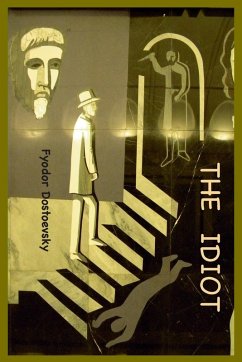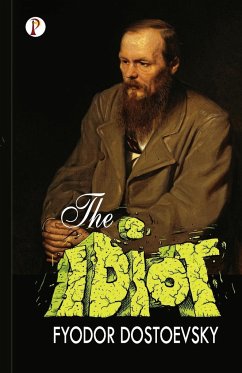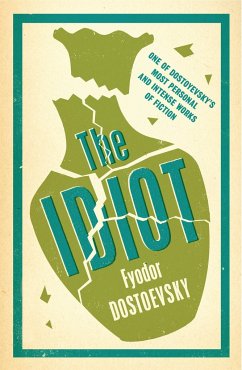
The Idiot
Versandkostenfrei!
Versandfertig in 1-2 Wochen
19,99 €
inkl. MwSt.

PAYBACK Punkte
10 °P sammeln!
"one of the most excoriating, compelling and remarkable books ever written; and without question one of the greatest" -- A. C. Grayling (Philosopher, Author, Master of New College of the Humanities) "The novels of Dostoevsky are seething whirlpools, gyrating sandstorms, waterspouts which hiss and boil and suck us in. They are composed purely and wholly of the stuff of the soul. Against our wills we are drawn in, whirled round, blinded, suffocated, and at the same time filled with a giddy rapture. Out of Shakespeare there is no more exciting reading." -- Virginia Woolf Dostoyevsky is a true mas...
"one of the most excoriating, compelling and remarkable books ever written; and without question one of the greatest" -- A. C. Grayling (Philosopher, Author, Master of New College of the Humanities) "The novels of Dostoevsky are seething whirlpools, gyrating sandstorms, waterspouts which hiss and boil and suck us in. They are composed purely and wholly of the stuff of the soul. Against our wills we are drawn in, whirled round, blinded, suffocated, and at the same time filled with a giddy rapture. Out of Shakespeare there is no more exciting reading." -- Virginia Woolf Dostoyevsky is a true master of the philosophical novel. In the character of Prince Myshkin, Dostoevsky, master of the philosphical novel, set himself the task of depicting "the positively good and beautiful man." The novel examines the consequences of placing such a unique individual at the centre of the conflicts, desires, passions and egoism of worldly society, both for the man himself and for those with whom he becomes involved. The result is, according to A.C. Grayling, "one of the most excoriating, compelling and remarkable books ever written; and without question one of the greatest."














